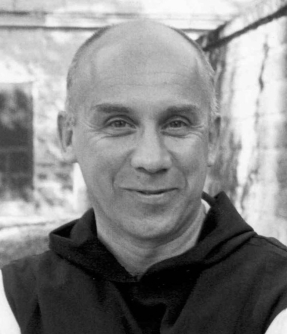 Thomas Merton
Thomas Merton
Thomas Merton (1915-1968) was a Catholic writer, theologian, Trappist monk, and mystic. The following is from his book New Seeds of Contemplation, describing his experiences in contemplation:
The utter simplicity and obviousness of the infused light which contemplation pours into our soul suddenly awakens us to a new level of awareness. We enter a region which we had never even suspected, and yet it is this new world which seems familiar and obvious. The old world of our senses is now the one that seems to us strange, remote and unbelievable—until the intense light of contemplation leaves us and we fall back to our own level.
Compared with the pure and peaceful comprehension of love in which the contemplative is permitted to see the truth not so much by seeing it as by being absorbed into it, ordinary ways of seeing and knowing are full of blindness and labor and uncertainty…
The sharpest of natural experiences is like sleep, compared with the awakening which is contemplation. The keenest and surest natural certitude is a dream compared to this serene comprehension…
Although this light is absolutely above our nature, it now seems to us “normal” and “natural” to see, as we now see, without seeing, to possess clarity in darkness, to have pure certitude without any shred of discursive evidence, to be filled with an experience that transcends experience and to enter with serene confidence into depths that leave us utterly inarticulate…
A door opens in the center of our being and we seem to fall through it into immense depths which, although they are infinite, are all accessible to us; all eternity seems to have become ours in this one placid and breathless contact…
All variety, all complexity, all paradox, all multiplicity cease. Our mind swims in the air of an understanding, a reality that is dark and serene and includes in itself everything. Nothing more is desired. Nothing more is wanting…
For already a supernatural instinct teaches us that the function of this abyss of freedom that has opened out within our own midst, is to draw us utterly out of our own selfhood and into its own immensity of liberty and joy.
Source: Thomas Merton, New Seeds of Contemplation (New York: New Directions, 1972), 226-228.
Some similarities to Joseph Smith’s First Vision seem to include:
- Being in solitude, in the center of a darkness
- Suddenly seeing an intense light
- The light seems unnatural, but able to be perceived without harm
- The light pours in and around, fills, and envelopes one in it
- The sense of entering a new world, a new heavenly eternal space, separate and distinct from the old world
- Being filled with a tremendous peace and love
- Coming to an understanding of things, seeing “the truth” directly
- Coming into contact with a presence that is Infinite, a seemingly supernatural presence
- This teaches one, instructs one, in deep eternal truths about life and one’s self
- Feeling freedom, release, rescue
- Experiencing tremendous joy, serenity and calm
- The absolute certainty, surety, and extreme realness of the experience
- Being unable to articulate the experience well, it being utterly indescribable, defying one’s ability to describe it
- Afterwards falling back down to the normal level of experience, being returned to one’s regular sense of self
If you would like to submit a “First Vision” account, either personal or found, for inclusion on this website, please click here.
Share this:




